In recent years, the Belgian partnership, Local Harvest, has expanded to include a wider product range. To combat food waste, several Belgian growers joined forces to form this non-profit association in 2019. "Local Harvest aims to add value to lower quality fruit by transforming it into juices, jams, wine, gin, and beer," begins one of the founders, Tom Mertens of Mertens Hal. "We want to establish a circular system, so none of the fruit grown goes to waste. As the festive season nears, our gift baskets are in especially high demand."
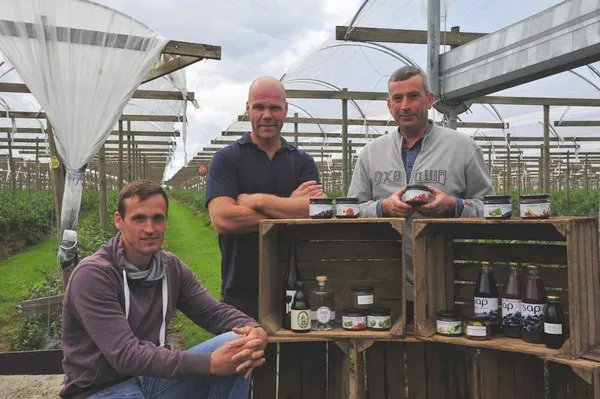
Four Belgian cultivation companies - Kwekerij Mulders, Mertens Hal, 't Gijsbemdenhof, and Dirk Vinckx with Leen Cools - founded this partnership. "Two years ago, we decided to expand so as to work with more of our own products. Kwekerij Mulders, sadly, decided to leave Local Harvest, but Bruneel Cox (apples), Adriaensen - Wynants (cherries), and growers Hans Bevers and Hans Van Loon (strawberries) joined," Tom says.
"Authenticity is vital to us, and since we want to offer a broad assortment, it's great to start with our own trusted apples, strawberries, and cherries. So, we can currently handle blueberries, kiwi berries, apples, cherries, and strawberries. The broadening also means we have a larger knowledge network of trusted outlets to tap."
"The products must be top quality"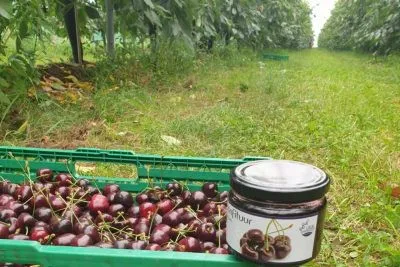 Local Harvest's range consists of numerous combinations. "For example, we have pure blueberry and apple juices, but also several flavor combinations with an apple base," Tom explains.
Local Harvest's range consists of numerous combinations. "For example, we have pure blueberry and apple juices, but also several flavor combinations with an apple base," Tom explains.
"With cherry, blueberries, ginger; you name it." The non-profit organization also develops alcoholic products. "We have a very popular blueberry wine but also decided to launch a 'Best tasting' elixir. Plus, we launched the 'Strawberry Fields' liqueur. This traditional recipe uses Hoogstraten strawberries and results in a lovely aperitif," Tom adds.
The growers are also considering dessert wines and especially blueberry beer. "Peter from 't Gijsbemdenhof is an avid brewer. So besides cultivating blueberries, he has a microbrewery at home. We're using that to try and develop a good blueberry beer. With the emphasis on goods, since there are already a few in the market. The products must be top-quality before we start working with them."
Local Harvest would like to regularly introduce new products. "It's undoubtedly our pride and joy to introduce new products to the market year after year. We love surprising our clientele with new flavor combinations. There will, naturally, be the occasional failure, but it's always great to come up with new discoveries. That process of tasting, experimenting, and refining before we put the product on the market is quite fun."
Added value and authenticity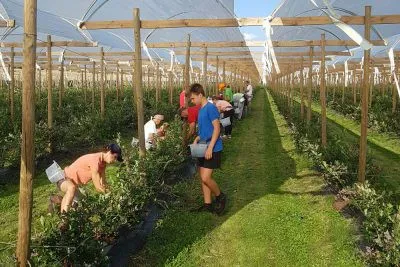 Local Harvest sells mainly to the local hospitality sector, greengrocers, and, of course, the growers' own vending machines.
Local Harvest sells mainly to the local hospitality sector, greengrocers, and, of course, the growers' own vending machines.
"We currently switching to smaller bottles for the mainstream assortment. Our intended target group still wants a unique experience and will more likely reach for the smaller 200 ml bottles," Tom continues.
"We still have larger bottles, but it looks nice to have several different flavor combinations alongside each other." The partnership is also increasingly focusing on pop-up events. "We all have busy schedules, so if we can work toward seven or eight events a year, it's easiest for us. It's a great opportunity for vendors and customers to find each other. There can also be tastings, where you get immediate feedback on whether people like a particular product," says Tom.
Are they considering selling to retailers? The right deals must first be made, admits Tom. "We're enthusiastic local growers in a non-profit organization where we try to get a fair margin for producers. We don't want to simply sell our added value and authenticity to a retail channel. Then genuine deals must be struck, so we don't lose our individuality."
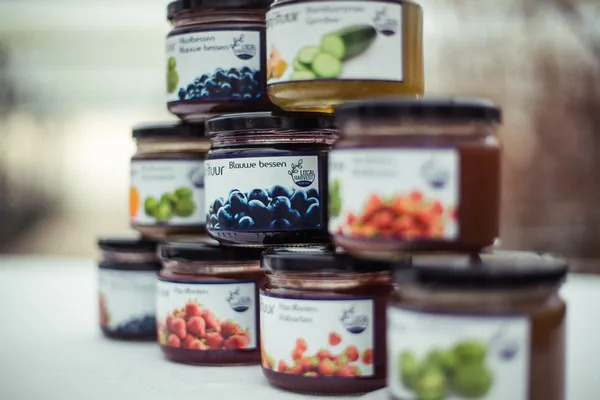
Gift baskets
That has led to a steady increase in revenues. Demand-wise, Tom sees an upward trend. "But, it's a dynamic process. During the pandemic, consumers seemed increasingly conscious of choosing local, sustainable products. That, along with the pop-up events, benefited us greatly. Yet, in the summer, demand was lower than before. As soon as the pandemic was over, people began wanting to spend more money on traveling and other things again."
Demand is, however, rising toward the holidays again. "We try to get together every Saturday to put together gift baskets. Many hands make light work, and as Christmas approaches, the baskets are very popular. People who still want nice Christmas baskets can, of course, come to us. All those combinations make wonderful gifts," Tom concludes.
For more information: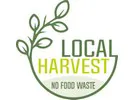 Local Harvest
Local Harvest
36 Hal
2322, Minderhout, Belgium
Email: info@localharvest.be
Website: www.localharvest.be
